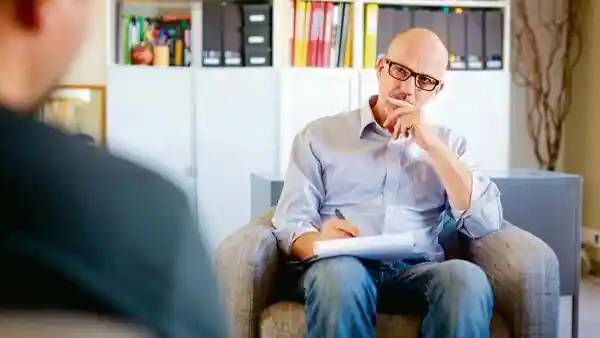AI language models could help diagnose schizophrenia
SOURCE: HTTPS://WWW.SCIENCEDAILY.COM/
OCT 09, 2023
Mental health apps are gaining traction among doctors, patients
SOURCE: LIVEMINT.COM
MAR 01, 2022

NEW DELHI : The shortage of competent psychiatrists and psychologists, and the stigma attached with mental health issues that discourage people from attending in-person consultation, is prompting the medical community to recommend the use of mobile apps and tele-consultation.
Rituparna Ghosh, a consultant at Apollo Hospitals, in Navi Mumbai, who even recommends its use said, mental health has been a “secret pandemic" affecting individuals’ well-being, and the number of patient queries on mental health has grown since the outbreak of covid. Due to the restrictions, more people turned to apps to reach medical professionals.
Duncan Stewart, director of research at consulting firm Deloitte’s Canada arm, said global spending on mental health apps is expected to touch $500 million in 2022, up from $200 million in 2019. “We think in the long-term, it will continue to grow, especially as companies figure out how to monetize it."
The trend is playing out in India, too. Amit Malik, founder and chief executive of InnerHour, a mental health app, said he witnessed a 300% increase in downloads in 2021. The app is now being used by three million users. Malik said around 60% of users were from tier-2 and sub-tier-2 cities, and there was near-300% growth in teletherapy services.
P.N. Sudarshan, partner and technology, media and telecommunications industry leader, Deloitte India, said the primary reason for this growth of in-app consultations is the lack of access to physical mental health care professionals beyond large urban centres.
In a report issued last week, titled TMT Predictions 2022, Deloitte said India has 0.29 psychiatrists and 0.07 psychologists per 100,000 people, compared with a median of 0.51 psychiatrists and 0.26 psychologists in other low-and mid-income countries.
But the shortage of doctors is not the only reason Indians are using the apps. The stigma attached with mental health discourages many from visiting psychiatric wards or seeing doctors in person.
Ghosh said patients can be asked to check mental health apps for gaining insights into immediate crisis intervention and prevention, some primary treatment and as an alternative to in-person therapy.
“To some extent, the apps can cater to the concerns as immediate intervention and treatment can be offered to people in remote areas, and at times they function 24 hours," she added.
Vijay Raaghavan, director of analytics solutions provider Fractal Analytics, said chatbot features on such apps add value as people with depression or psychosis do not identify themselves with a problem and hence don’t like to seek in-person help for the fear of stigma. Apps keep things anonymous. “Some of the chatbots also use natural language processing to understand text and tonality to manage the conversation thread and escalate it if required," he said, adding that the most used functionality in mental health apps is immediate response to certain triggers.
“There are a lot of people who want to talk to someone. That functionality is being exploited to the full extent by mental health apps through chatbots," he added. Mental health apps are also cost-effective.
For instance, InnerHour charges ?650 per hour, while mental well-being apps like Calm offer an annual subscription fee of ?2,999 for classes by experts and guided exercises. Psychiatrists and psychologists, on the other hand, can charge up to ?1,000 or more for a single session. That said, while many doctors vouch for these apps, they also warn against relying on them for more serious issues. Ghosh said if the concerns are severe it is always advisable to meet mental health professionals and follow their treatment and therapy protocol.
LATEST NEWS
WHAT'S TRENDING


Data Science
5 Imaginative Data Science Projects That Can Make Your Portfolio Stand Out
OCT 05, 2022

SOURCE: HTTPS://WWW.SCIENCEDAILY.COM/
OCT 09, 2023
SOURCE: HTTPS://WWW.THEROBOTREPORT.COM/
SEP 30, 2023
SOURCE: HTTPS://WWW.SCIENCEDAILY.COM/
AUG 08, 2023
SOURCE: HOUSTON.INNOVATIONMAP.COM
OCT 03, 2022
SOURCE: MEDCITYNEWS.COM
OCT 06, 2022